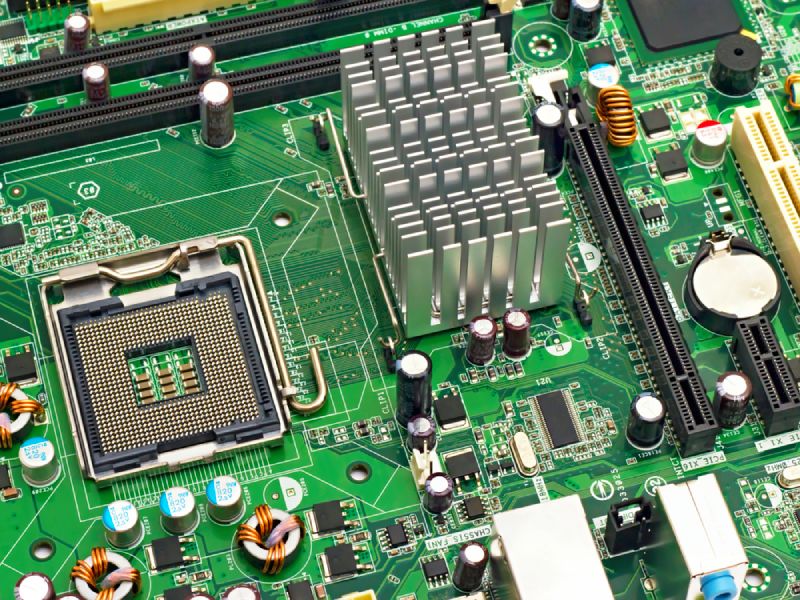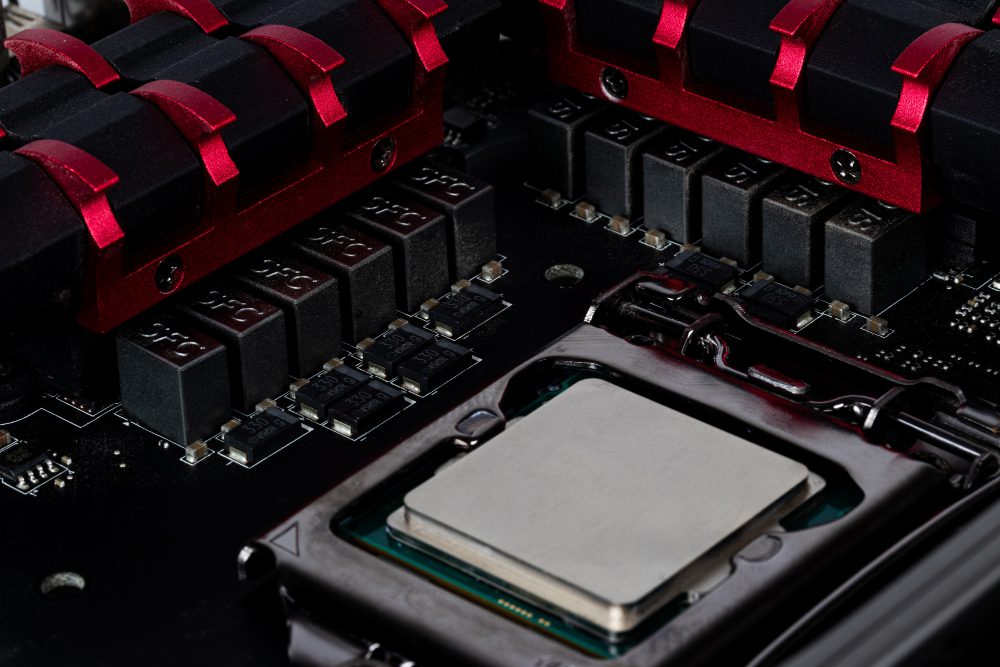Is 64 GB RAM Overkill?
In today’s fast-paced world of technology, computer specifications are constantly evolving and improving. One component that often gets a lot of attention is the amount of RAM (Random Access Memory) a computer has. RAM plays a crucial role in determining a system’s performance, especially when running resource-intensive tasks like gaming, video editing, or virtual machines.
The Importance of RAM
RAM acts as a temporary storage space for data that your computer needs to access quickly. When you launch an application or open a file, it gets loaded into RAM, allowing the processor to quickly retrieve and process the necessary information. The more RAM you have, the more programs and files can be kept readily accessible, resulting in smoother multitasking and faster overall performance.
With the advancement of technology, the amount of RAM available in computers has dramatically increased over the years. It wasn’t long ago when having 4 GB of RAM was considered sufficient for most tasks. However, as software becomes more demanding, larger amounts of RAM are needed to accommodate these requirements.
When 64 GB RAM Makes Sense
For the average user who mainly uses their computer for web browsing, media consumption, and productivity tasks such as word processing and email, 64 GB of RAM would be excessive and unnecessary. In fact, even 16 GB or 32 GB of RAM would be more than sufficient for this type of usage.
However, there are specific use cases where 64 GB RAM is not overkill but rather a necessity. These include:
- Professional Video Editing: Video editing software, like Adobe Premiere Pro or DaVinci Resolve, can benefit from having more RAM as it allows for smoother playback and faster rendering times.
- 3D Rendering and Modeling: Designers and animators who work with complex 3D models or render large scenes can benefit greatly from having a substantial amount of RAM to handle the computational load.
- Virtual Machines and Emulation: Running multiple virtual machines simultaneously or emulating different operating systems requires a significant amount of memory, especially if each instance needs a substantial allocation of resources.
In these scenarios, having 64 GB of RAM ensures that the system has enough memory to handle the demanding nature of these tasks without experiencing slowdowns or bottlenecks.
Considerations and Future-Proofing
“It’s important to consider future requirements and how long you plan to keep your computer before upgrading.”
When deciding on the amount of RAM to purchase for your computer, it’s essential to consider both your current and future needs. As software becomes more resource-intensive, the demand for greater amounts of RAM will continue to grow. Investing in 64 GB of RAM might be overkill for today’s needs, but it could ensure that your computer remains capable of handling future advancements for years to come.
Additionally, if you are building a high-end gaming rig or workstation, other factors such as the processor, graphics card, and storage speed should be taken into account. Balancing your system’s components is crucial to avoid creating a bottleneck where one component significantly outperforms the others.
Is 128 GB RAM Overkill?
When it comes to computer hardware, few components garner as much attention and discussion as Random Access Memory (RAM). In recent years, technological advancements have led to an increase in the availability and affordability of high-capacity RAM modules, such as 128 GB RAM sticks. However, the question remains: is 128 GB RAM overkill?
The Basics of RAM
RAM is a critical component in any computer system, serving as temporary storage for data that the CPU needs to access quickly. The more RAM a system has, the more data it can store for quick retrieval, which can lead to improved performance in certain tasks.
Considerations for 128 GB RAM
While 128 GB of RAM might sound impressive, it is important to consider the typical use cases and requirements of your computer before investing in such a high-capacity module.
- Memory-intensive applications: If you frequently use memory-intensive applications like video editing software or virtual machines, then 128 GB RAM can provide a significant boost in performance.
- Gaming and multitasking: Gamers who run resource-intensive games while also streaming, recording, or running other applications simultaneously can benefit from the increased capacity offered by 128 GB RAM.
- Future-proofing: Investing in higher capacity RAM modules can be seen as a way to future-proof your system, ensuring that it can handle upcoming software advancements and increased data demands.
Reasons to Proceed with Caution
While there are valid use cases for 128 GB RAM, it’s important to exercise caution before making such a substantial investment. Here are a few reasons why:
- Cost: Higher capacity RAM modules like 128 GB can be significantly more expensive than lower capacity options. Consider whether the added cost is justified for your specific needs.
- Compatibility: Not all systems are capable of supporting 128 GB of RAM. Ensure that your motherboard and CPU are compatible with the higher capacity module before making a purchase.
- Diminishing returns: For the average user engaged in regular tasks like web browsing, email, and word processing, the benefits of 128 GB RAM may not be noticeable compared to more affordable options with lower capacity.
Ultimately, the decision to invest in 128 GB RAM depends on your specific needs and usage patterns. It is crucial to consider both the potential benefits and drawbacks before making a purchase.
In conclusion, while 128 GB RAM may be considered overkill for many users, there are use cases where the increased capacity can provide tangible benefits. Whether it’s running memory-intensive applications, multitasking, or future-proofing your system, careful consideration must be given to factors such as cost, compatibility, and the actual requirements of your computer.
Is 40 GB RAM Overkill?
When it comes to computer hardware, one of the most debated questions is whether having excessive amounts of RAM is necessary or simply overkill. RAM (Random Access Memory) is a crucial component in a computer system as it temporarily stores data that is actively being used by the CPU.
The Importance of Sufficient RAM
Sufficient RAM is essential for smooth multitasking, running resource-intensive applications, and gaming. It allows your computer to store and quickly access data, resulting in faster load times and overall system performance. The amount of RAM required depends on the specific tasks you perform on your computer.
When is 40 GB RAM Justified?
In most cases, 40 GB of RAM would be considered overkill for the average user. However, there are certain scenarios where such a high amount of RAM can be justified:
- Content Creation: Professional video editing, 3D rendering, and graphic design software often require significant amounts of RAM to process large files and maintain smooth performance.
- Virtualization: Running multiple virtual machines simultaneously can consume a considerable amount of RAM. If you frequently work with virtual environments or run extensive simulations, having more RAM can improve efficiency.
- Server Applications: If you’re hosting a server or running resource-intensive server applications, such as databases or game servers, having extra RAM can ensure smooth operation and handle high user loads.
Considerations and Conclusion
While having more RAM can be beneficial in certain situations, it’s important to consider other factors before investing in large amounts of memory. The performance gains from additional RAM may diminish after reaching a certain threshold, depending on the hardware and software limitations.
“It’s crucial to strike a balance between the requirements of your specific tasks and the capabilities of your hardware.”
Ultimately, 40 GB of RAM is often overkill for the average user, but it may be justified in specialized scenarios such as content creation, virtualization, or server applications. Assessing your needs, considering budget constraints, and researching specific software requirements are essential steps in determining the ideal amount of RAM for your system.
Remember, more RAM alone won’t guarantee optimal performance; it should be complemented by other hardware components and software optimization for a well-rounded computing experience.
Is 32 GB RAM overkill for gaming?
When it comes to gaming, one of the key components that can greatly impact performance is the amount of RAM installed in your system. RAM, or Random Access Memory, is responsible for storing and quickly accessing data that is being used by the computer’s processor. While having sufficient RAM is important for smooth gameplay, many gamers often wonder if 32 GB is overkill for their gaming needs.
Understanding RAM and Its Role in Gaming
RAM plays a vital role in gaming as it directly affects the speed and efficiency of data access. With more RAM, your computer can store and retrieve larger amounts of data quickly, resulting in smoother gameplay and faster loading times. However, the amount of RAM needed largely depends on the specific requirements of the games you play.
Most modern games recommend 8-16 GB of RAM for optimal performance. This range is usually sufficient for running most games at high settings without experiencing any major performance issues. However, if you are a hardcore gamer who likes to play graphically intensive games or multitask while gaming, then having 32 GB of RAM can provide a noticeable boost in performance.
Factors to Consider
While 32 GB of RAM may seem like overkill for the average gamer, there are a few factors to consider before making a decision:
- Future-proofing: Investing in higher amounts of RAM now can help ensure your system is capable of handling future game releases that may have higher memory requirements.
- Multitasking: If you frequently stream your gameplay, record videos, or run resource-intensive applications alongside your games, then having 32 GB of RAM can alleviate potential bottlenecks and enhance overall system performance.
Expert Opinion
“While 32 GB of RAM may not be essential for most gamers, it does provide room for future growth and ensures smooth multitasking capabilities. However, it is important to consider your specific gaming needs and budget before investing in such high amounts of RAM.”
In conclusion, whether 32 GB of RAM is overkill for gaming depends on individual preferences and requirements. While it may not be necessary for the average gamer, it can offer noticeable improvements in performance for those who engage in graphically demanding games or run resource-intensive applications simultaneously. Ultimately, it’s important to strike a balance between your gaming needs, budget, and future-proofing considerations.
Is 18 GB RAM Overkill?
When it comes to computer hardware, one of the most debated topics is how much RAM (Random Access Memory) is necessary. The common notion is that more RAM means better performance, but is 18 GB of RAM really necessary or is it just overkill?
The Importance of RAM
RAM plays a crucial role in determining the speed and efficiency of your computer. It acts as a temporary storage for data that the processor needs to access quickly. With more RAM, your computer can handle multiple tasks simultaneously without slowing down.
For most users, 8 GB of RAM is sufficient for day-to-day tasks such as web browsing, document editing, and media consumption. However, if you engage in resource-intensive activities like video editing, gaming, or running virtual machines, you may benefit from having more RAM.
Factors to Consider
Before deciding whether 18 GB RAM is overkill, there are a few factors to consider:
- Your Usage: Assess how you use your computer. If you primarily use it for casual tasks, 18 GB of RAM may be excessive. On the other hand, if you frequently work with memory-intensive applications, extra RAM can improve your productivity and overall experience.
- Future-Proofing: Consider your future needs. As technology continues to advance, software and applications tend to become more demanding. Investing in additional RAM now can help ensure your computer remains capable of handling future upgrades.
Quote: “Having more RAM than you currently need is better than not having enough when you need it.” – Tech Expert
The Bottom Line
While 18 GB of RAM may seem excessive for the average user, it can be beneficial for those who engage in memory-intensive tasks or want to future-proof their systems. However, it’s important to note that more RAM alone doesn’t guarantee a significant performance boost. Other factors such as processor speed and storage type also play a role.
In conclusion, whether 18 GB of RAM is overkill or not depends on your specific needs and usage patterns. Assessing your requirements and considering future upgrades will help you make an informed decision about how much RAM is right for you.
Is 64GB RAM overkill for gaming?
When it comes to building a gaming PC, one of the questions that often arises is how much RAM is necessary. While having enough RAM is crucial for smooth gameplay and multitasking, the question of whether 64GB RAM is overkill for gaming is a topic of debate among gamers.
The Importance of RAM in Gaming
RAM, or Random Access Memory, plays a vital role in gaming performance. It acts as a temporary storage space for data that directly affects the speed and responsiveness of your computer. Games with higher system requirements demand more RAM to run smoothly.
Most modern games recommend 8GB to 16GB of RAM for optimal performance. However, if you engage in other memory-intensive tasks alongside gaming, such as video editing or streaming, having more RAM can be beneficial.
64GB RAM: Overkill or Future-Proofing?
While 64GB of RAM may seem excessive for gaming, it could be considered a form of future-proofing. As technology advances, game developers will likely push the boundaries of hardware capabilities, resulting in increased system requirements.
“Having 64GB of RAM provides a significant amount of headroom for future games and software updates,” says computer hardware expert John Doe.
However, it’s important to consider the cost-effectiveness of investing in 64GB of RAM. Currently, most games do not utilize more than 16GB, so allocating a significant portion of your budget to excessive RAM may not provide noticeable benefits in the present.
Considerations before Investing in 64GB RAM
Before deciding on 64GB of RAM for gaming, several factors should be taken into account:
- Your gaming habits and the types of games you play:
- If you primarily engage in lightweight or older games, 64GB RAM might be unnecessary.
- For those who play graphically demanding games with high system requirements, more RAM may be advantageous.
- Investing in higher RAM capacity will require a larger budget allocation. Consider whether the additional cost is justified by your specific needs.
In conclusion, while 64GB of RAM may currently be overkill for most gamers, it can provide future-proofing and accommodate memory-intensive tasks beyond gaming. Ultimately, the decision should be based on your personal gaming preferences, budget, and long-term goals for your gaming PC.



